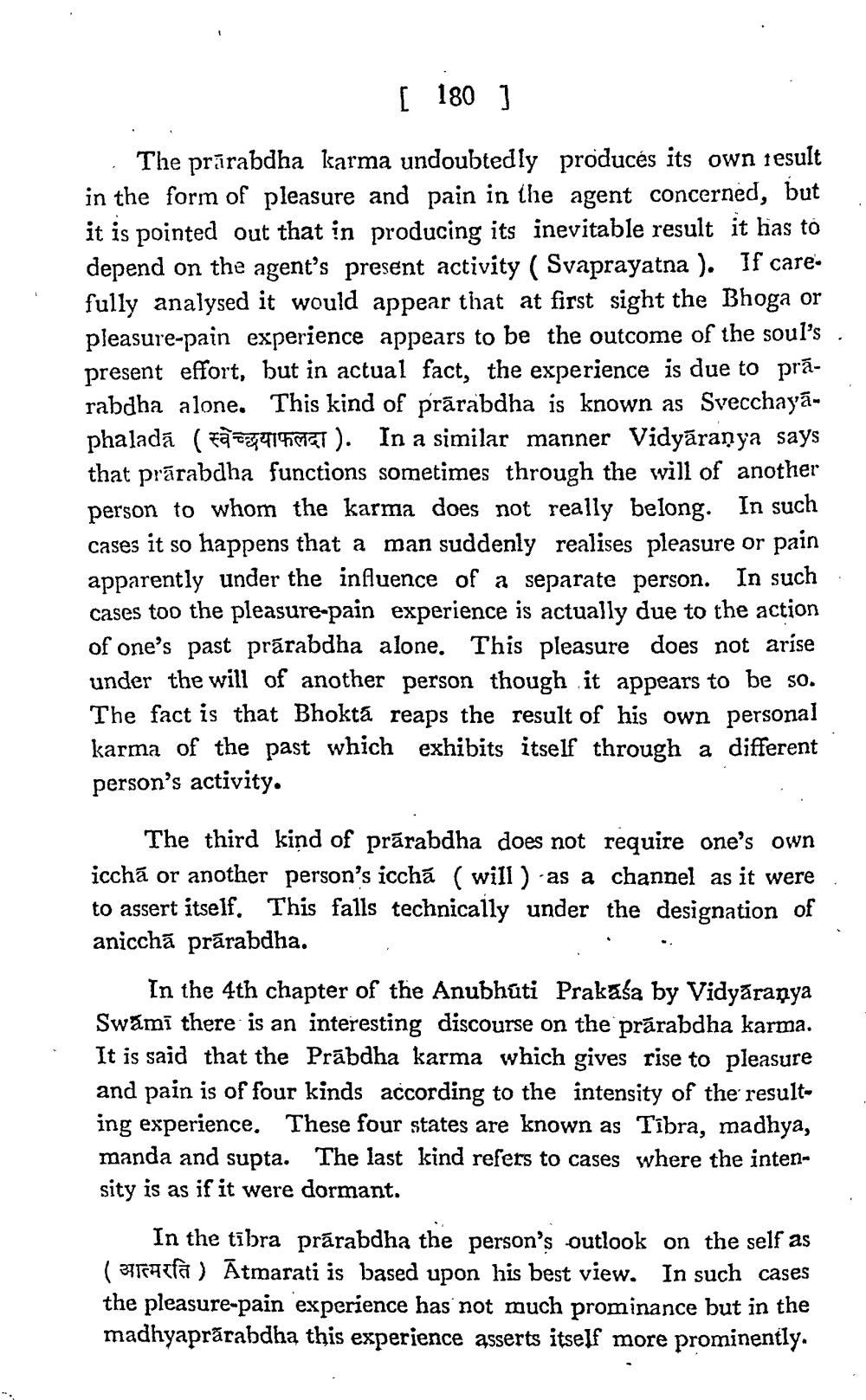________________
[ 180
]
· The prārabdha karma undoubtedly producés its own result in the form of pleasure and pain in the agent concerned, but it is pointed out that in producing its inevitable result it has to depend on the agents present activity (Svaprayatna ). If care. fully analysed it would appear that at first sight the Bhoga or pleasure-pain experience appears to be the outcome of the soul's present effort, but in actual fact, the experience is due to prárabdha alone. This kind of prārabdha is known as Svecchayāphalada ( Fa 2014101). In a similar manner Vidyāranya says that prārabdha functions sometimes through the will of another person to whom the karma does not really belong. In such cases it so happens that a man suddenly realises pleasure or pain apparently under the influence of a separate person. In such cases too the pleasure-pain experience is actually due to the action of one's past prārabdha alone. This pleasure does not arise under the will of another person though it appears to be so. The fact is that Bhoktá reaps the result of his own personal karma of the past which exhibits itself through a different person's activity.
The third kind of prārabdha does not require one's own icchā or another person's iccha ( will ) -as a channel as it were to assert itself. This falls technically under the designation of anicchā prārabdha.
In the 4th chapter of the Anubhūti Prakasa by Vidyāraṇya Swamī there is an interesting discourse on the prárabdha karma. It is said that the Prābdha karma which gives rise to pleasure and pain is of four kinds according to the intensity of the resulting experience. These four states are known as Tíbra, madhya, manda and supta. The last kind refers to cases where the intensity is as if it were dormant.
In the tībra prárabdha the person's outlook on the self as ( fratla) Ātmarati is based upon his best view. In such cases the pleasure-pain experience has not much prominance but in the madhyaprārabdha this experience asserts itself more prominently.




